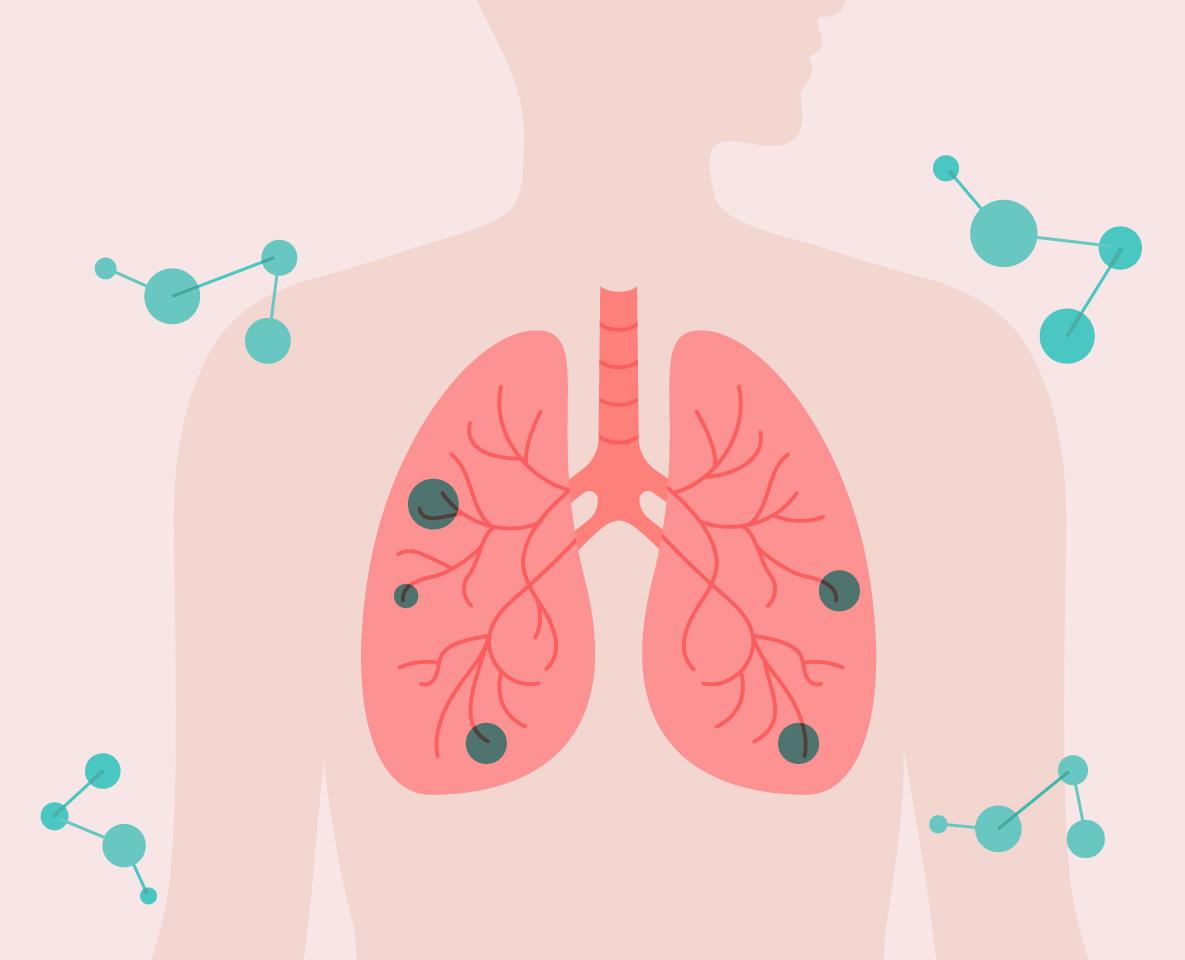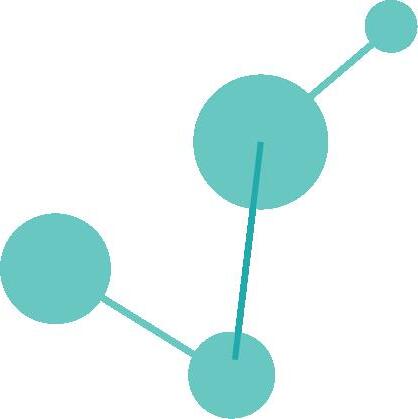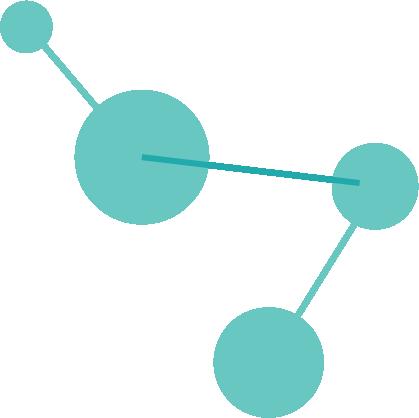Improving outcomes for lung cancer patients through best practice molecular testing
In Australia, lung cancer is the fifth most diagnosed cancer but accounts for the highest number of cancer-related deaths each year, claiming more lives than prostate and breast cancer combined. Early and accurate diagnosis, combined with appropriate, evidence-based treatment, is critical to improving outcomes for patients affected by this devastating disease.
The Royal College of Pathologists of Australasia (RCPA) and the Thoracic Oncology Group of Australasia (TOGA) have partnered to create comprehensive, evidence-based Best Practice Recommendations for Molecular Testing of Lung Cancer in Australia. These recommendations were developed collaboratively by an expert panel of lung cancer specialists, including pathologists, oncologists and consumer representatives.
Key features of these recommendations include:
• Which molecular tests to perform. Guidance on selecting appropriate tests based on the type and stage of lung cancer.
• Optimal timing of testing. Recommendations on when molecular tests should be conducted to ensure timely treatment initiation, maximising outcomes for each patient.
• Best practices for test performance. Strategies to maintain high-quality testing, ensuring accurate and reliable results.
The successful development of these recommendations will contribute significantly to the enhancement of diagnostic accuracy and patient care in lung cancer.
The Advisory Group
Dr Benhur Amanuel, RCPA WA representative
Dr Peter Jessup, RCPA Tas representative
A/Prof Rachel RobertsThomson, TOGA SA representative
A/Prof Caroline Cooper, RCPA Qld representative
Prof Sonia Klebe, RCPA SA representative
Prof Ben Solomon, TOGA Vic representative
Prof Wendy Cooper, RCPA Steering Committee Chair and NSW representative
Dr Wei-Sen Lam, TOGA WA representative
Dr Rebecca Tay, TOGA Tas representative
Prof Stephen Fox, RCPA Vic representative
A/Prof Trishe Leong, RCPA President and Vic representative
Ms Rebecca Trowman Medical writer
Mr Jon Graftdyk, TOGA Consumer representative
A/Prof Zarnie Lwin OAM, TOGA Qld representative
Dr Janney Wale, RCPA Consumer representative
Dr Nick Pavlakis, TOGA NSW representative
Summary of Key Questions and Recommendations
Key question
1. Of the currently identified biomarkers, which should be routinely tested in advanced stage non-squamous NSCLC?
Consensus recommendations*
→ EGFR, BRAF, KRAS, ERBB2 (HER2), ALK, ROS1, MET, RET and NTRK and PD-L1 should be tested in all advanced stage nonsquamous NSCLC. This includes any advanced stage lung carcinoma with an adenocarcinoma component. For example, non-small cell carcinoma with squamous and glandular differentiation or where an adenocarcinoma cannot be excluded (e.g., a small biopsy/cytology diagnosis of NSCLC-NOS).
→ EGFR testing should include all clinically relevant oncogenic variants in exons 18, 19, 20 and 21.
→ Testing should be performed on reflex by pathologists to expedite turnaround times.
2. Of the currently identified biomarkers, which should be (routinely) tested in early stage non-squamous NSCLC?
→ At a minimum EGFR, ALK, ROS1 and PD-L1 testing must be undertaken in stage IB-III non-squamous NSCLC, and nonresectable locally advanced non-squamous NSCLC treated with curative intent chemo-radiotherapy.
→ More comprehensive testing for EGFR, KRAS, BRAF, ERBB2(HER2), MET, ALK, ROS1, RET and NTRK can be undertaken in the early stage setting if practical.
→ No molecular testing is required for surgically resected stage IA NSCLC.
3. Should tumour biopsy and molecular testing be undertaken on disease progression during treatment with a targeted therapy?
4. Is there a role for more extended biomarker testing?
5. Should patients with squamous cell carcinoma on biopsy undergo molecular testing?
→ In patients progressing on any targeted therapy, molecular testing for resistance mechanisms should be considered if tissue is available.
→ If tissue biopsy is not available or feasible, plasma based ctDNA molecular testing for resistance mechanisms should be considered.
→ More comprehensive testing could be considered for patients with advanced stage NSCLC especially cases lacking any of the oncogenic variants of the genes outlined in KQ1 when clinically relevant.
→ At a minimum, advanced stage squamous cell carcinoma should undergo MET and PD-L1 testing.
→ Upon request, molecular testing for all markers in KQ1 should be undertaken for patients diagnosed with lung squamous cell carcinoma on small biopsy or cytology that have a clinical profile suspicious for driver mutation (e.g., <50 yo or no/minimal smoking history).
6. Should patients with small cell carcinoma undergo molecular testing?
7. What biomarkers are required for immunotherapy?
*All unanimous decisions, unless indicated otherwise
→ No biomarker testing is currently indicated for pure small cell carcinoma.
→ PD-L1 IHC for assessment of tumour proportion score (TPS) should be undertaken in all advanced stage/metastatic NSCLC and stage IB-III NSCLC, regardless of histology. This should be performed as a reflex test.
→ Molecular biomarker status is also required for immunotherapy treatment decisions in non-squamous NSCLC (e.g., EGFR, ALK, ROS1).
→ There is currently no routine clinical role for Tumour Mutation Burden (TMB) or Microsatellite Instability (MSI) testing in NSCLC in Australia.
Key question
8. Which molecular testing should be undertaken on reflex by pathologists and which should be requested by an oncologist?
Consensus recommendations*
→ All molecular testing recommended for advanced stage NSCLC should be undertaken on reflex by pathologists, to expedite TAT of results and preserve tissue.
→ †If the pathologist is unaware of the stage of the patient’s NSCLC, molecular testing should still be performed on reflex.
→ For known early stage disease, testing can be performed either on reflex, or following MDT discussion, depending on local preferences.
9. Which specimen types are suitable for molecular testing?
10. What is the optimal specimen handling technique for molecular testing?
→ Any specimen type with sufficient proportion and number of viable tumour cells is adequate for molecular testing or IHC. FFPE material (small biopsy or cytology cell blocks) is suitable for routine molecular analyses, except bone biopsies that have undergone decalcification.
→ Anatomical pathologists should select the optimal FFPE specimen block (or cytology smear) from the primary tumour or metastasis.
→ Non-FFPE cytology specimens (eg samples from FNA) are also appropriate for molecular testing but are not recommended for IHC.
→ Some cytology specimens are generally not adequate for molecular testing (eg sputum, bronchial brushings/washings).
→ Blood samples collected appropriately for ctDNA analysis are suitable for molecular testing.
→ Preanalytical factors should be standardised to ensure sufficient fixation of biopsy specimens and optimal preservation of DNA and RNA.
→ Contemporary FFPE tissue blocks are preferred to archival specimens for both NGS and PD-L1 IHC.
→ Minimal immunohistochemical markers should be undertaken in diagnostic specimens to preserve material for molecular testing.
11. What is the role of molecular testing using circulating cellfree DNA?
12. What techniques should be used for molecular testing?
For upfront molecular testing:
→ Testing of circulating tumour DNA (ctDNA) in plasma specimens can be used if the tissue specimen is inadequate or unavailable. If no variants are found, repeat tissue biopsy should be considered to enable molecular testing if clinically appropriate.
→ ctDNA testing could also be considered if molecular results are required as a matter of urgency and where ctDNA testing results can be achieved faster than tissue-based testing. If no variants are found, repeat testing should be undertaken on a tissue specimen.
In the setting of disease progression on targeted therapy:
→ ctDNA molecular testing for resistance mechanisms should be considered if tissue biopsy is not feasible (as per KQ3).
→ NGS panel testing using both DNA and RNA is recommended.
→ If NGS panels using both DNA and RNA are not available then other multiplex methods can also be used (eg PCR based tests).
→ Assays should be able to identify variants in specimens with at least ≥10% tumour cell content. For ctDNA testing higher sensitive assays are required.
Key question
13. How should molecular testing results be reported – what guidance is needed for clinical interpretation?
14. What is an appropriate turnaround time (TAT) for molecular testing in Australia?
Consensus recommendations*
→ Molecular results should be reported by a pathologist and/or scientist with expertise in solid tumours and somatic variants.
→ Evidence-based tiers of clinical relevance should be provided to classify somatic variants based on their level of clinical significance.
→ To enable management decision-making, molecular testing results should be available as soon as possible, ideally within 5 business days but no more than 10 business days from receipt of the specimen in the molecular laboratory.
→ Laboratories should ensure laboratory procedures and rapid referral pathways are in place to minimise the time taken for specimens to reach the molecular laboratory.
15. What IHC testing is appropriate for molecular biomarker assessment in NSCLC?
16. What quality assurance measures are required for biomarker testing?
→ PD-L1 IHC using a validated assay and appropriate clone is required.
→ Although upfront ALK IHC is not essential if RNA NGS is used for molecular testing, it still has clinical utility and should be performed if there is adequate tissue available.
→ There is no role for routine IHC for ROS1, BRAF V600E, EGFR L858R/ex19del or NTRK if RNA NGS panels are used for molecular testing as recommended in KQ12.
→ All assays and all specimen types used for molecular testing should be fully validated by the laboratory.
→ For IHC markers, validation to a standard suitable for predictive IHC biomarkers is required for all predictive IHC.
→ Laboratories performing any biomarker molecular analyses must participate in an external quality assurance program for all tests (molecular and IHC), as well as performing internal quality control measures.
→ Laboratories should ensure test results that are unexpected or equivocal should be confirmed or resolved using an alternative method or sample.
Representing pathologists and senior scientists in Australasia
Contact us Find us
+61 2 8356 5858
rcpa@rcpa.edu.au
Connect with us
Durham Hall 207 Albion Street
Surry Hills NSW 2010 Australia
/TheRoyalCollegeOfPathologistsOfAustralasia
@the_rcpa
/the-royal-college-of-pathologists-of-australasia-rcpa
@PathologyRCPA

























